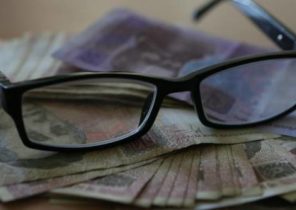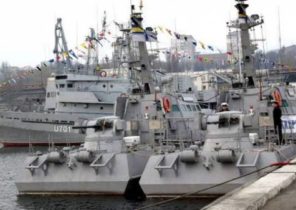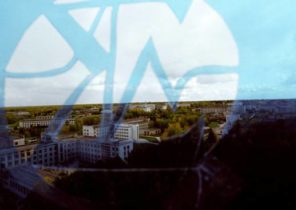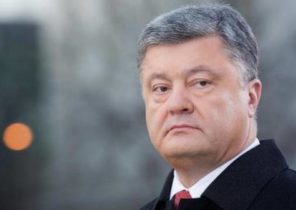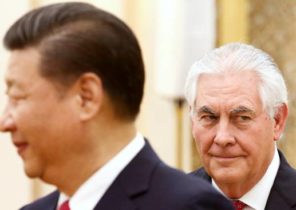
From Brazil to Argentina, the population turns away from governments of the left orientation, which, in General, ensured the progress and well-being in recent decades. But they were not good enough in terms of investment in the future.
When the first female President of Argentina, Cristina Fernandez de Kirchner, nine years ago came to power on a wave of sympathy and hope, the poor of the country and most of the middle class thought that she wants to revive the former glory of Argentina.
Recently the former President has filed a number of charges, including misuse of public funds and corruption that has put almost a symbolic point that can be called annus horribilis (horrible year) for the left wing in Latin America.
The same Kirchner before the onset of 2016 had to hand over power to the conservative Mauricio Macri after 13 years in the pink Palace, of which the first four as the wife of the President.
In Brazil Dilma Rousseff was removed from office due to a giant corruption scandal at the national oil company Petrobras.
Chile’s President Michelle Bachelet stone fell from the heights in public opinion polls, which also was the result of corruption in the family, and the leader of Venezuela Nicolas Maduro is leading the country to a complete collapse.
The left wing in Latin America, with no signs of life
In Bolivia, President Evo Morales after losing the referendum attempts to do so, to remain in power longer, and Rafael Correa in Ecuador have recognized that re-election is unrealistic.
“The left wing in Latin America has shown no signs of life,” wrote the former foreign Minister of Mexico Jorge castañeda in the New York Times.
The verdict castagnedi the left wing in Latin American politics, of course, a moot point, but the truth is that red or pink celebration, which began at the end of the last century, ended in defeat. Left weary and bereft of illusions about voters who were hoping for big fireworks.
It all began with a real Bang, when the former rebel paratrooper Hugo Chavez came like an earthquake and a win in Venezuela and got the reins in 1999. He came to victory on a wave of discontent is the fact that the previous government did not share the enormous wealth of the country and left most of the population live in poverty.
His “Bolivarian revolution” was contagious, and numerous oil money of Venezuela freely flowed friends and allies in the region. This was part of what he called “socialism of the XXI century”.
A dream of justice.
Of course, the left wing in Latin America vary in magnitude between countries, there are large differences, but overall it was the dream of greater social justice and a belief that the state should play a key role in the development of society.
It was a clear response to blind trust in the 1990s that the so-called “Washington consensus” can put an end to the debt crisis through privatization, structural change, and open markets. This policy was not so necessary, moreover, it has led to the emergence of large differences and the growth of poverty throughout the region.
“South America is now the weakest link in the world’s neoliberal chain”, stated the Brazilian sociologist Emir Sader (Sader Emir) in 2008
Socialism, which in many places with a large base may be cited as the Latin American edition of social democracy, received a response, but among other things he was breathtakingly lucky.
Raw material prices in these years has reached dizzying heights, the region with its developed production of copper, oil, soybeans and other raw materials, which was not enough especially China, fine used
While the rest of the world significantly shrunk after the financial crisis of 2008, Latin America independently sailed by and even experienced quite remarkable economic growth.
Although there were some quite notable exceptions, the government has kept its promises and improved the lives of millions of their fellow citizens. Only one Luis “Lula” inácio (Luis ‘Lula’ Inacio) and its programme “zero hunger” to help the poorest inhabitants of Brazil, changed the country’s rating in human development indices of the United Nations. Lula left office when he was supported by 80% of the population.
In Chile, the government built houses, which was expensive, has improved the living conditions of single mothers and pensioners, and in Argentina and Venezuela, the poorest segments of the population a torrent gushed all sorts of subsidies.
In Bolivia, Evo Morales, first Indian President in the country with a predominantly Indian population, was returned to its people its culture and sense of self-confidence.
The government disposed of their abilities in different ways, some have sunk to populism, which rather divided than United the country.
This was especially true of Venezuela and Argentina, where everyone who was not on the government side at 100%, by definition, was against it, often allegedly with the help of the so-called “forces from abroad”. Argentine sociologist, Muraro Heriberto (Heriberto Muraro) described the situation in Argentina in an interview with BBC:
“Our society was divided into those that hates our President, those who worship her, and those who are between these two flanks and is deadly tired of this polarization”.
But where it all went wrong seriously?
First of all, has less money because the economy of China collapsed, and commodity prices fell. The socialist government made the mistake of spending all the money when it was flowing and not becoming them to postpone the onset of bad times.
Despite warnings sounded from many sides, they also made no further steps to abandon its large dependence on raw materials and invest in education and technology.
By and large, Venezuela produces nothing but oil, iron, aluminium, and Argentina made the main rate on soybean exports, while Chile’s economy is now totally dependent on copper. In Ecuador, 86% of the revenues of the country provide oil, bananas and flowers.
Suddenly, the social program was on the verge of collapse, and the population had high expectations, and the current situation has led to great resentment among the people.
According to the analytical report of the Institute of Latinobarómetro, based in Chile, many Latin Americans last year lost confidence in democracy and their own leaders. The same is true of faith in political institutions, which are weak initially.
And also the corruption
But macroeconomics is not the only cause of popular discontent. The leaders of the left wing everywhere underestimated how much people tired has hit the region like an epidemic, corruption, which is not a characteristic of only the left flank.
In Brazil, millions of people took to the streets after revelations of how the entire political elite, despite the color, a deep my hands in the pockets of the company Petrobras, and so on plunged the country into a national economic crisis. This situation cost the Dilma Rousseff presidency and destroyed the reputation of Lula, from which he retired.
In Chile, the son of President Bachelet took the position of mother for self-enrichment, and the President was too weak to take any action that cost her accumulated enormous political capital.
In Venezuela, the corruption among the new political elite brought to power by the late Hugo Chavez, has reached unprecedented heights, and in Argentina for a long time there are rumors about how Cristina Kirchner increased his personal fortune many zeros.
But the evidence is clearly so great that the judge decided to prosecute. Although the name of the former President generally is associated with a number of dirty deeds.
In fact, only the small Uruguay, as an encouraging example of what the leader may not fall into temptation.
Retired now 81-year-old josé “Pepe” Mujica insisted during his presidency that he will continue to live in his modest home, he continued to drive his ancient Volkswagen, conducting a social democratic policy, due to which remains a symbol of integrity — as Uruguayan Anker jørgensen (Anker Jørgensen is a Danish politician, a social Democrat, Prime Minister of the country in 1972-1973 and 1975-1982 — approx. transl.).
While in the United States and Europe, making it begins to use populism, there is every indication that the population of Latin America turns away from him and demands that came to power politicians-pragmatists.
Argentinian commentator Andres Oppenheimer (Andres Oppenheiner) hopes that it will happen, he also thinks able to predict what happens now, namely, the Latin American leaders will inherit the economic recession and therefore will be forced to take economic constraints, which will affect the population.
But after a few years comes a new populist with a lot of promises, he expressed assumption in the Chilean newspaper El Mercurio.
“If you do not break this cycle, we will not be able to go further. We must insist that our leaders must be pragmatic, that they every year will have to spend money on education, infrastructure, health care, and also to save money and to deal decisively with corruption. This is the best legacy we can leave our children in a new, pragmatic Latin America.”

